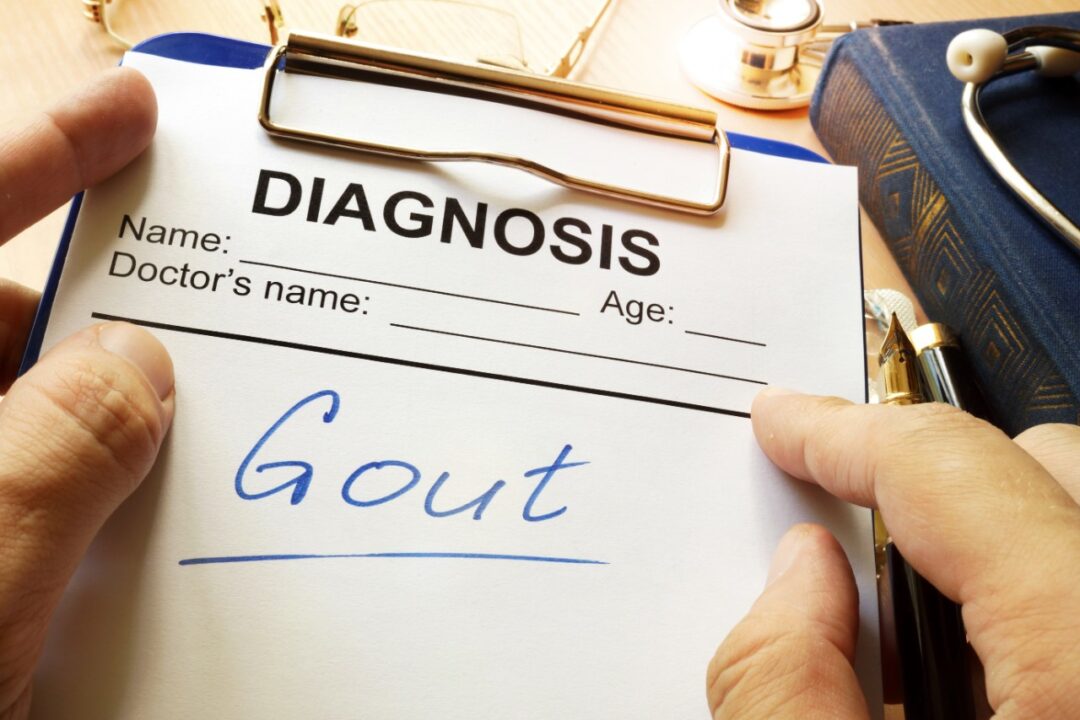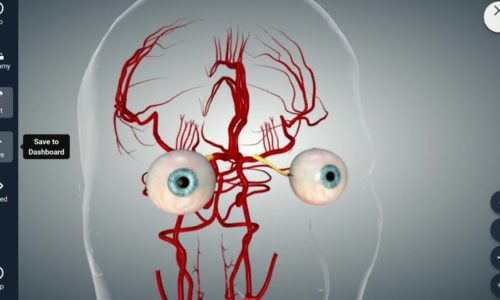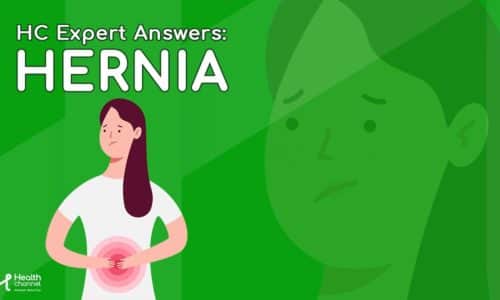What are the symptoms and the treatment for gout? |

Last article, we talked about the symptoms and causes of gout. This week, we’ll talk about the diagnosis and treatment of gout, including dietary changes. My husband has had gout for many years, so I am very familiar with the dietary triggers for gout flares!
If you have symptoms, how is the diagnosis of gout made?
- There are several tests that can help make the diagnosis. Not all of them are necessary for all patients.
- Blood test – A test that measures the uric acid level in the blood can be helpful. However, this test is not diagnostic for some patients.
- Joint fluid test – Your doctor can use a needle to remove fluid from the affected joint. If urate crystals are seen under the microscope, that provides the diagnosis.
- X-ray – An X-ray of the affected joint may be helpful to rule out other conditions.
- Ultrasound – An ultrasound can often detect the urate crystals in a joint or gout nodule.
What are the possible complications of gout?
- Recurrent gout flares may cause erosion and destructive changes within affected joints.
- Untreated gout may also cause deposition of urate crystals under the skin, causing gout nodules called tophi (tophi is pleural, tophus is singular).
- Urate crystals may also build up in the kidneys, causing kidney stones.
If you have gout, what lifestyle changes can you make to decrease your risk of flare-ups and complications?
- Drink plenty of fluids, especially water
- Limit or avoid alcohol, especially beer
- Limit your intake of high-fructose corn syrup, especially soft drinks
- Limit your intake of meat, fish, and poultry, but especially red meat and organ meats
- Limit the amount of seafood in your diet, such as shrimp
- Get more of your protein from low-fat dairy products, which seem to have a protective effect
- Maintain a desirable body weight – If you are overweight, losing weight may decrease your uric acid levels. However, fasting, or losing weight rapidly may temporarily increase uric acid levels.
- Maintain a regular exercise program
What are the other treatment options for patients with gout?
- Some people manage very well with lifestyle changes alone, at least for a while. Medications can be used to treat acute attacks, to prevent future attacks, or to decrease the risk of complications.
- Nonsteroidal anti-inflammatory drugs (NSAIDs) – NSAIDs include over-the-counter and prescription medications, such as ibuprofen, naproxen sodium, indomethacin, and others. Your doctor may recommend that you take a higher dose during an acute attack, then a lower dose to help prevent flares. Side effects include an increased risk of bleeding and ulcers.
- Colchicine – This is a prescription medication that works effectively to relieve gout pain. It may be taken in higher doses to help with an acute flare, and then in lower doses to help prevent recurrent flare-ups. It can have side effects (primarily gastrointestinal symptoms), especially if taken in large doses.
- Corticosteroids – This includes medications such as Prednisone. They may be given in pill form, or as a shot. We usually don’t use these medications unless a patient cannot take NSAIDs or colchicine, primarily because of the risk of adverse effects associated with these drugs.
- Medications that block uric acid production – These medications would be taken daily to try to prevent gout flares and complications. They include allopurinol and febuxostat. By blocking uric acid production, they can lower your blood level of uric acid. Side effects are not uncommon.
- Medications that improve the removal of uric acid by the kidneys – This includes probenecid and lesinurad, which are taken daily. They do help prevent joint flares and complications, but they increase the level of uric acid in the kidney, so they can increase your risk for kidney stones. They can have other side effects as well.
- The decision about taking medications for gout should be discussed with your doctor, weighing the risk of side effects against the potential benefits of decreasing gout flares and complications.
For more information about a low-purine diet, follow this link:
https://www.drugs.com/cg/low-purine-diet.html
If you have any more questions just Ask Hanna, our health advisors are here to help.
Dr. Anita Bennett MD – Health Tip Content Editor
Image: ©Shutterstock / ThamKC








